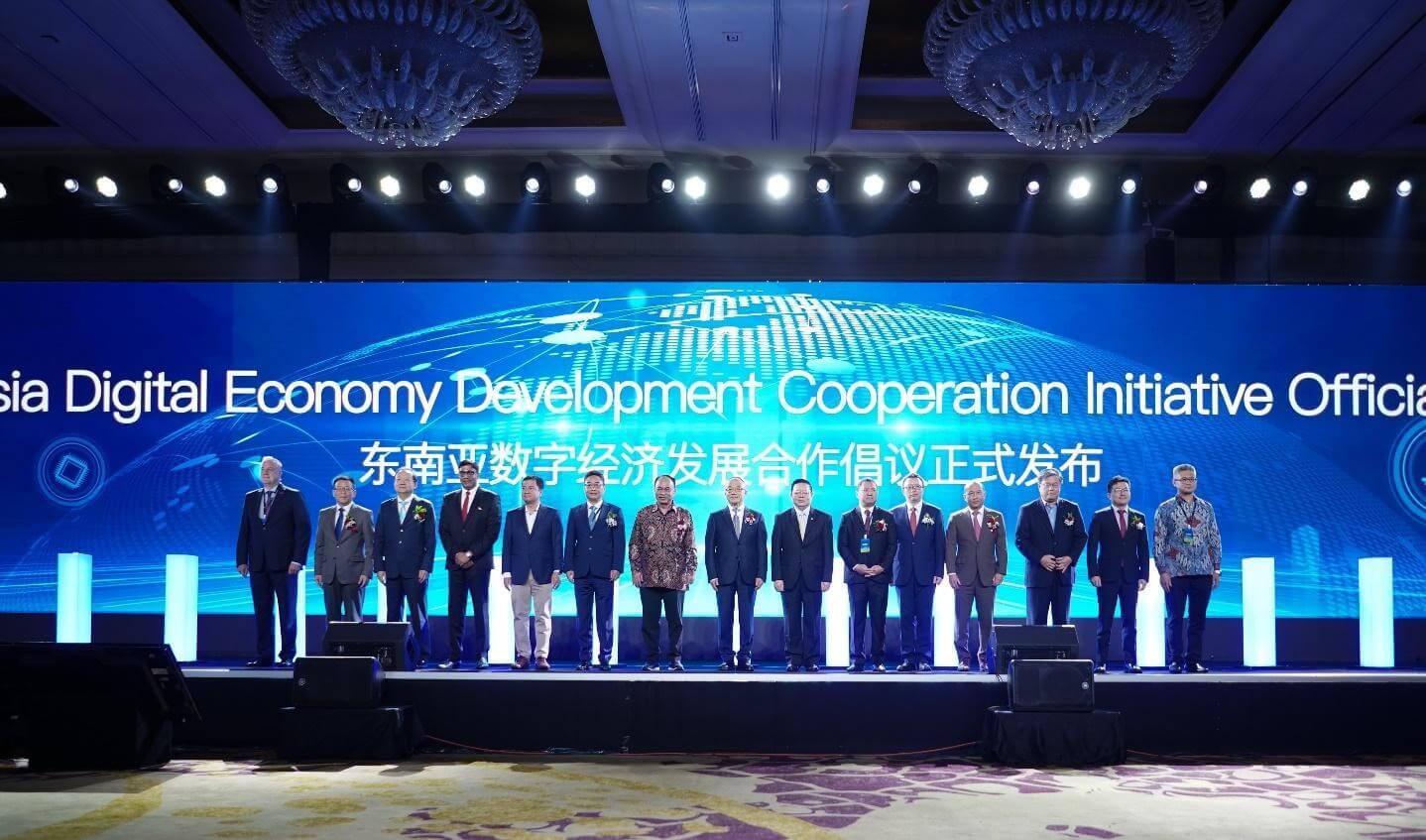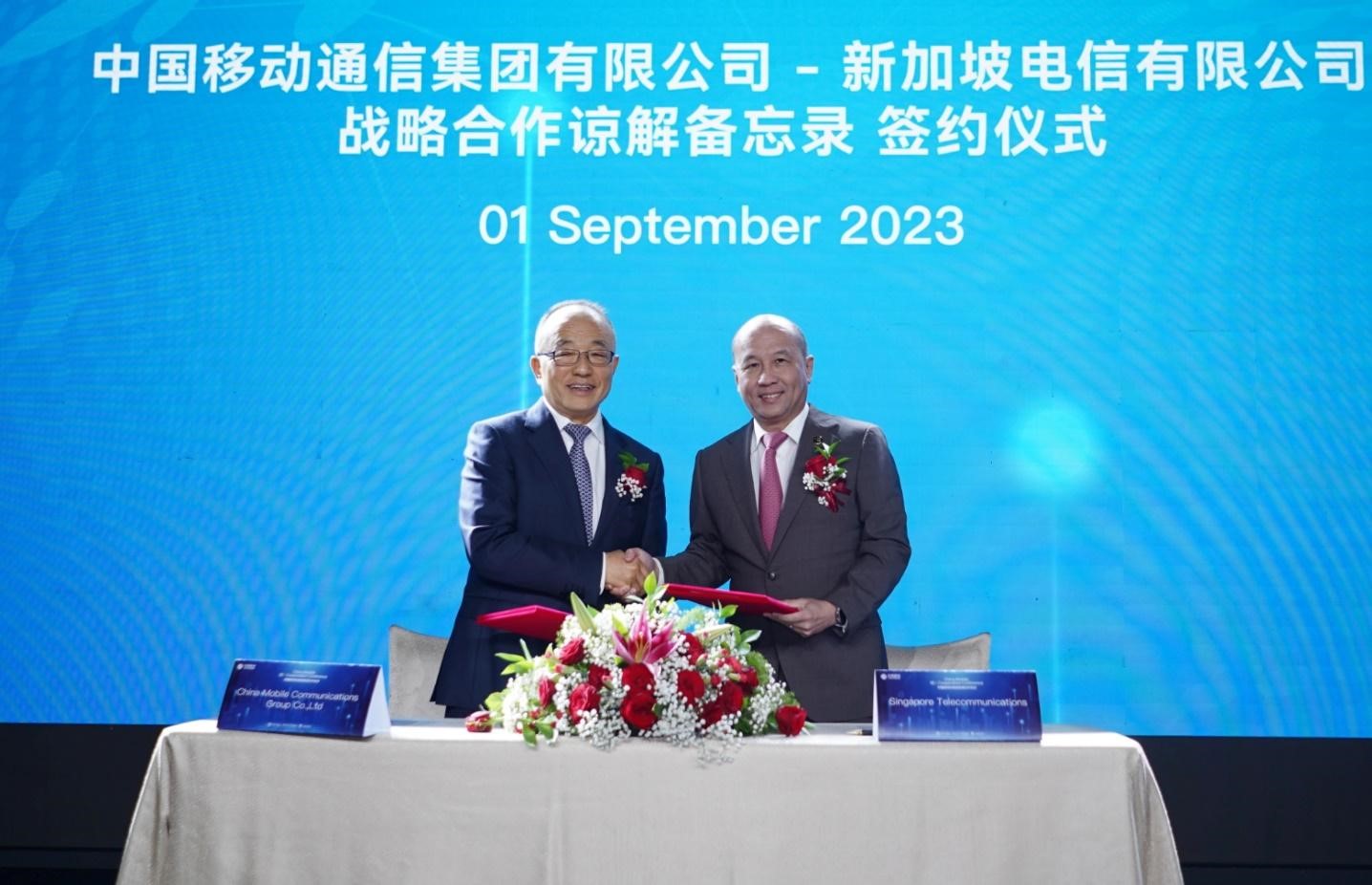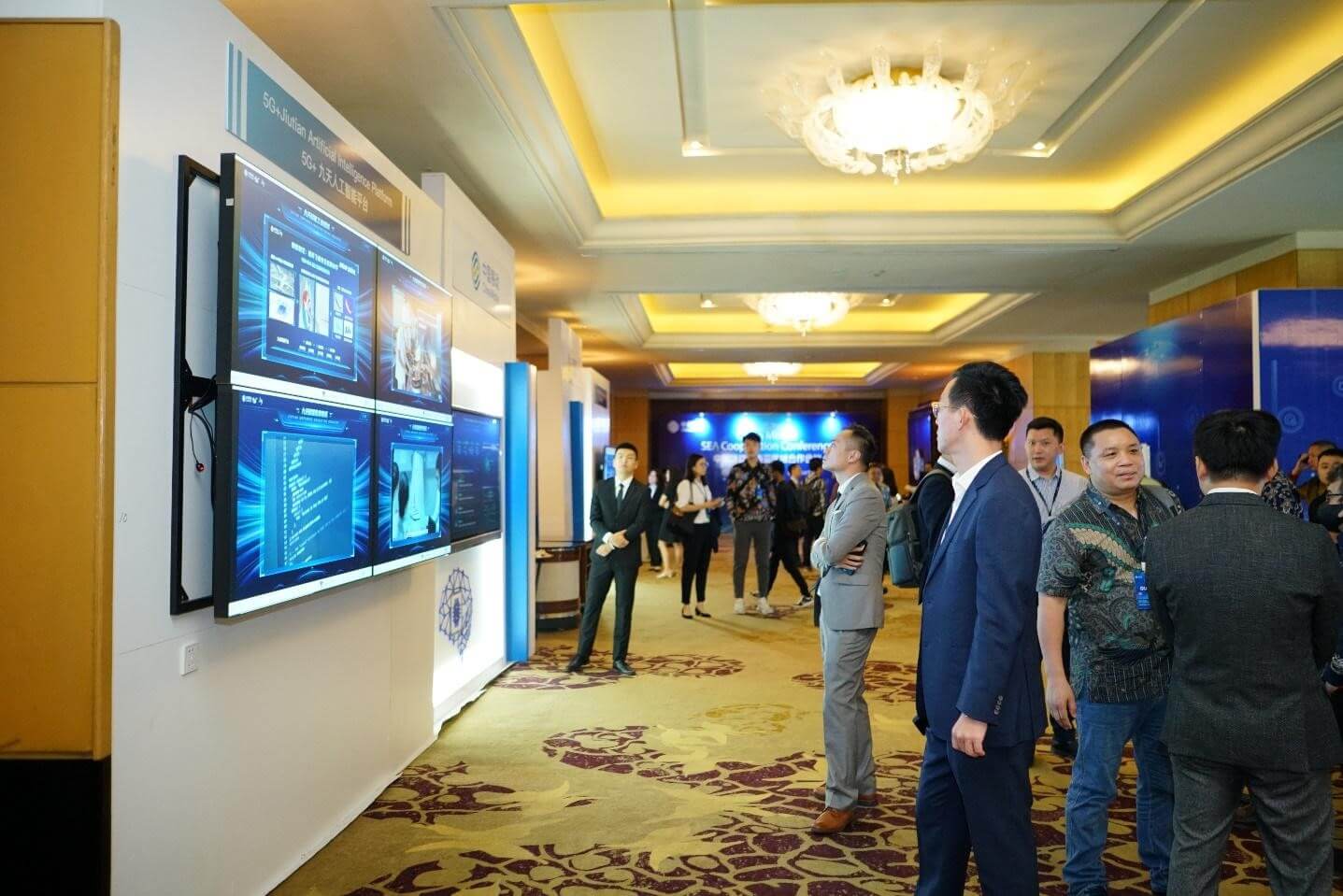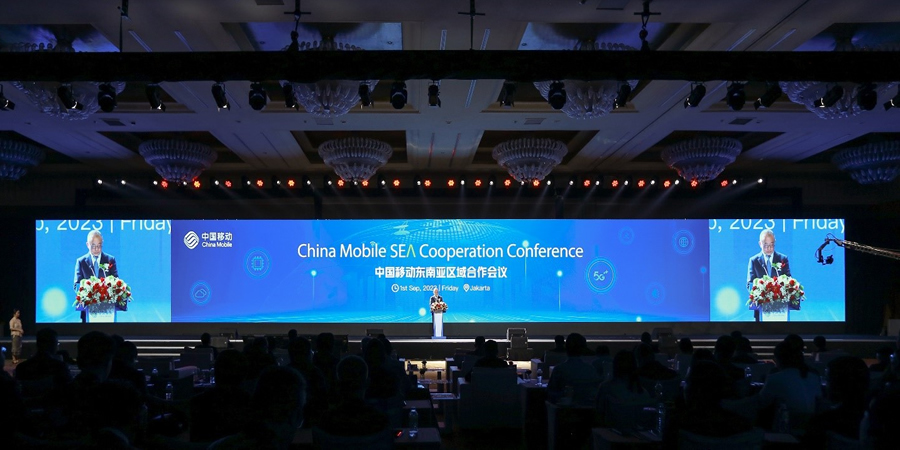The 2023 China Mobile Southeast Asia Regional Cooperation Conference was held in Jakarta, Indonesia, on September 1, bringing together China Mobile and its regional partners with government representatives from across Southeast Asia. With the theme “Embrace Digitalization and Collaboratively Shape an Intelligent Future,” the conference provided a platform for fruitful discussions and the announcement of visionary partnerships.
The dignitaries who addressed the conference included H.E. Dr. Kao Kim Hourn, Secretary-General of the Association of Southeast Asian Nations; H.E. Luhut Binsar Pandjaitan, Indonesia's Coordinator for Cooperation with China, Coordinating Minister for Maritime Affairs and Investment of Indonesia; H.E. Budi Arie Setiadi, Minister of Communication and Informatics of Indonesia; H.E. Mme. Hou Yanqi, Ambassador Extraordinary and Plenipotentiary of the People’s Republic of China to ASEAN; H.E. Shi Zhongjun, Secretary General of the ASEAN-China Centre; and Gao Tongqing, Executive Vice President (EVP) of China Mobile Communications Group Co., Ltd. In total, more than 300 leaders from intergovernmental organizations and government agencies, leading operators and ICT business partners, industry experts and scholars, and key media across Southeast Asia attended the conference. China Mobile Migu supported the live streaming of the event.
Tongqing reminded attendees that China Mobile sees this as an opportune time to move forward with its partners to accelerate collaboration between the digital economies of China and Southeast Asia. He identified three areas for joint development.
The first is the construction of high-quality digital economic infrastructure to serve global customers. This will involve investing in submarine and terrestrial cables and data centers in Southeast Asia to create a premium network and promoting the interoperability of digital content between China and Southeast Asian countries, thus providing a "digital base" for the rapid development of the regional digital economy.
The second is the development of innovative 5G applications that accelerate the growth of the digital industry. China Mobile will leverage its mature 5G, artificial intelligence, the Internet of Things and blockchain technologies and provide access to industry models and benchmark cases of smart factories, smart ports, smart transportation and smart cities. This will help strengthen the implementation of integrated 5G applications and enable a new model of digital economic development in the region, providing a "digital intelligence engine" for economic and social transformation.
The third involves achieving win-win results at a high level by jointly promoting cooperation across the digital ecosystem. Tongqing emphasized that China Mobile will do its best to help create an intelligent digital ecosystem in the region, integrating technology, capital and industry to strengthen regional economic cooperation and provide a "digital innovation platform" for regional prosperity.
In their speeches, H.E. Dr. Kao Kim Hourn, H.E. Luhut Binsar Pandjaitan, H.E. Budi Arie Setiadi, H.E. Mme. Hou Yanqi and H.E. Shi Zhongjun thanked China Mobile for holding this regional cooperation conference and encouraged China Mobile to join hands with regional partners to promote the prosperity and development of the digital economy in Southeast Asia.
Visionary Partnerships
China Mobile, together with H.E. Dr. Kao Kim Hourn, H.E. Luhut Binsar Pandjaitan, H.E. Budi Arie Setiadi, H.E. Mme. Hou Yanqi, and H.E. Shi Zhongjun, and partners in various fields from Singapore, Indonesia, Malaysia, Thailand and Brunei, jointly unveiled the "Southeast Asia Digital Economy Development Cooperation Initiative" at the conference. With the aim of encouraging sustainable development of the digital economy in Southeast Asia, it guides regional partners to share and co-develop knowledge and innovations and to cooperate for mutual benefit and the promotion of industrial transformation with digital intelligence.

Another highlight of the conference was the announcement of a new strategic cooperation between China Mobile and Singapore Telecommunications (Singtel). Specifically, the two parties have agreed to cooperate to develop 5G and IoT applications and system integration solutions for the enterprise market as well as products and services for the consumer market. They will also explore opportunities for cooperation in overseas information infrastructure investment and in joint technology innovation and research and development to co-create greater economic benefits and social value.

Gao Tongqing, Executive Vice President of China Mobile, and Yuen Kuan Moon, Group CEO of Singtel
In addition, China Mobile International also signed strategic cooperation memoranda with China-ASEAN Information Harbor Co., Ltd., PT Indosat Tbk and Maxis Broadband Sdn Bhd to strengthen cooperation with partners in various fields.
Thriving Ecosystem
The conference’s panel forums brought together China Mobile, Huawei, GDS and ZTE, alongside experts from Deloitte China, the Singapore Institute of Engineering, the National University of Singapore and Nanyang Technological University. They discussed Southeast Asia’s ongoing digital transformation and the importance of access to computing hubs to ensure the development of the region’s digital economy and smart cities.
The conference also included a special exhibition area with nine distinct areas: 5G private networks, 5G+ smart parks, 5G+ smart mines, 5G+ smart factories, 5G+ smart ports, 5G+ smart cities, 5G+ smart homes, 5G+ Internet of Vehicles and Jiutian Artificial Intelligence Platform. These demonstrate China Mobile's core capabilities in networking, industry applications and ecosystem development.

China Mobile has continuously deepened its international operations in recent years. To serve international roaming users, it has developed large-scale consumer, carrier and enterprise businesses and established mobile networks in Hong Kong and Pakistan. As of July 2023, China Mobile had expanded its footprint in 38 countries and regions around the world. Its total international transmission bandwidth was 128 Tbps, with 80 submarine and terrestrial cables, and more than 230 overseas points of presence (PoPs). Its global network includes self-built data centers in Hong Kong, Singapore, London and Frankfurt, with a total of 12,100 racks.











